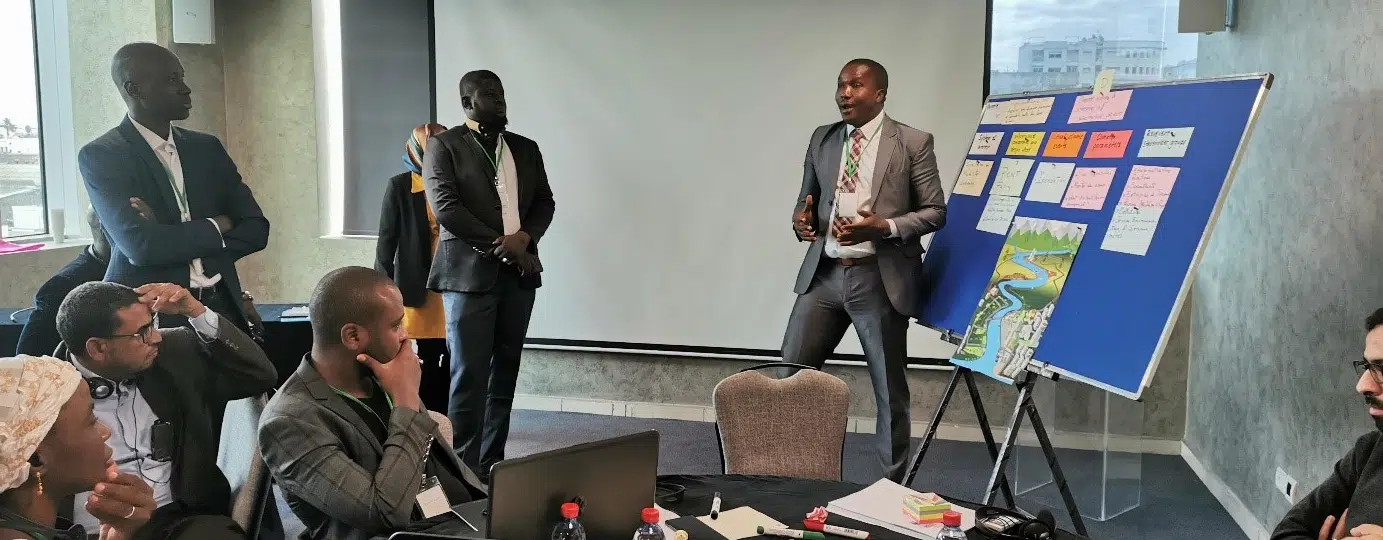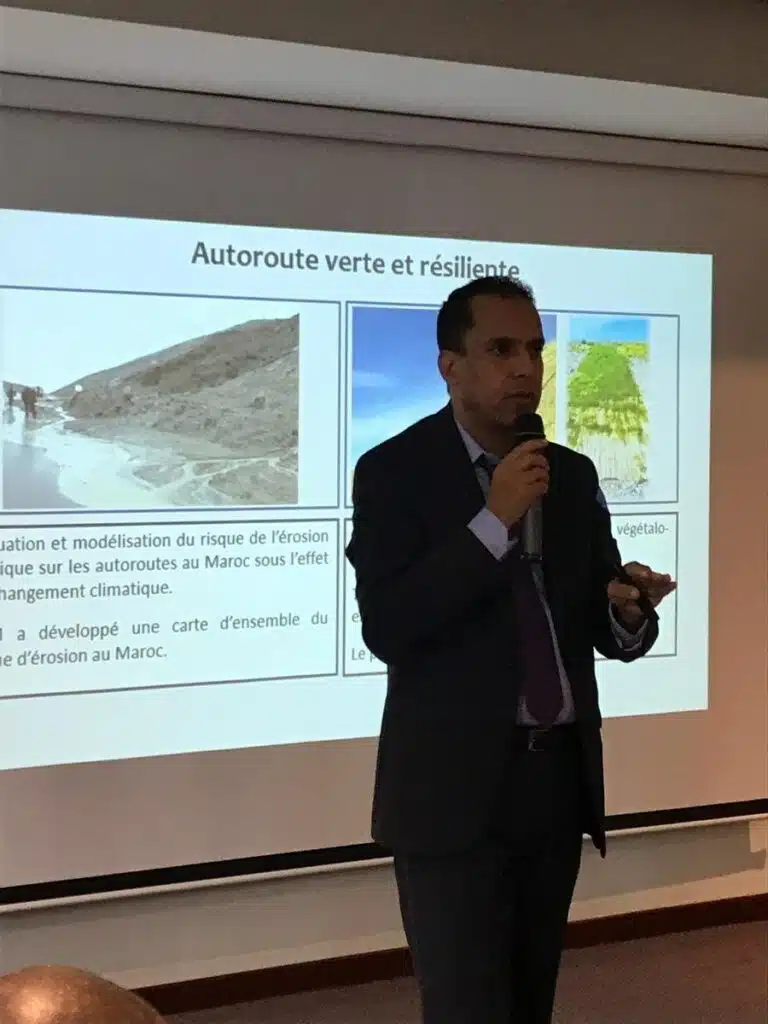By Levent Toprak
The successful cooperation between the Islamic Development Bank (IsDB) and GIZ under the umbrella of the Transformative Urban Mobility Initiative (TUMI) continued with a training focused on Adaptation in Urban Transport. More than 30 experts and decision makers from IsDB’s member countries and partner countries of Germany’s development cooperation in West Africa came together to learn about and discuss how urban mobility can integrate responses to climate change. The two-day workshop with participants from Morocco, Mali, Mauretania, the Gambia, Senegal and Ivory Coast was held in Casablanca, Morocco from November 13th to 14th 2019.
The workshop was opened by Mr. Saeed Mohammed, Global Senior Transport Specialist at IsDB, and Levent Toprak, Transport Policy Advisor at GIZ. Both stressed the importance of taking action on climate change in the transport sector, especially for urban areas, where several climate risks are even more severe. IsDB therefore aims at increasing capacities of their member countries in resilient planning of transport infrastructure, which is in line with IsDB’s newly adopted climate change implementation framework.
The workshop
The main goal of the workshop was to raise awareness of climate change risks for the transport sector and equip decision makers with knowledge and capacities to integrate climate change into their planning. Specifically, the training aimed at increasing the trainee’s knowledge with regards to:
– The science base on climate change and why transport and infrastructure planning has to take into account climate risks for resilient planning;
– Learning from adaptation project experiences from the Moroccan Highway Authority;
– Methods and approaches of climate proofing transport projects and infrastructure investments with a focus on identifying and assessing specific climate risks as well as defining and selecting adaptation measures to increase resilience;
– Familiarize decision makers from IsDB member countries with the bank’s transport policy framework as well as the climate change implementation framework, its action plan and related tools.
Based on the success of the previous IsDB-GIZ training for IsDB project managers a month ago in Istanbul, also this workshop applied an interactive approach to knowledge transfer. The information was delivered to the trainees using the Harvard Case Method, in which the participants get introduced to a topic and then put the learnt into practice in simulation exercises based on a case study. This approach allowed for valuable exchange between participants from different countries. A joint summary of the exercises let the participants reflect on the topic and discuss how the new knowledge can be of use in their own work.
The training was jointly conducted by:
Ms. Magdalena Hoerst, Climate Change Adaptation Expert from NIRAS-IP Consult, Germany;
Mr. Saeed Mohammed, Global Senior Transport Specialist at IsDB;
Mr. Levent Toprak, Transport Policy Advisor at GIZ and TUMI.
To highlight the importance of resilient planning for the urban transport sector, an overview of climate change risks laid the ground for the workshop. An interactive learning exercise in which participants had to make decisions on investing into resilient infrastructure under uncertain climate conditions, drastically increased the participants’ sensitivity for the importance of the topic. After the introduction of the climate-proofing approach by the trainer, the participants got their hands on in group work exercises to practice the steps to climate-proof a fictious project.
The results of the workshop
The multi-country group of participants went through relevant steps of climate proofing for infrastructure investments – an approach developed by the GIZ Project “Enhancing Climate Services for Infrastructure Investments”. Four groups worked on following steps of climate proofing for projects:
– Climate scoping and screening, identifying transport systems and infrastructure potentially under climate risk;
– Climate risk assessment focusing on transport systems and infrastructure, formulating a climate impact chain, and valuating multiple risk factors;
– Identification and selection of adaptation measures via a multi-criteria and cost-benefit analysis, aiming to reduce climate-related risks of transport systems and infrastructure projects.
To diving deep into assessing climate risks and related adaptation options of sustainable urban transport systems, the participants learnt about IsDB’s transport policy framework as well as its climate change implementation framework, its action plan and related tools.
The training evaluation revealed that the participants were highly satisfied with the training in general and especially with the training objectives, methods and the usefulness for their own work. The results of a knowledge self-assessment indicate that the workshop increased the decision makers’ knowledge on sustainable urban transport projects and especially on climate proofing approaches including climate change adaptation options.
The way forward of the IsDB-GIZ cooperation on sustainable mobility
As successful the cooperation between the IsDB and GIZ started off as important it is to continue capacity building and strengthen efforts to prepare urban transport for a future in a changing climate. On behalf of the Federal Ministry of Economic Cooperation and Development and the Transformative Urban Mobility Initiative (TUMI), GIZ will continue the partnership with the IsDB in 2020.
Contact: Levent Toprak, Levent.Toprak@giz.de


